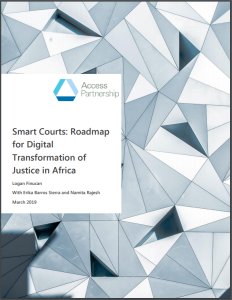Rule of law is an indispensable pillar supporting social justice as well as a necessary precondition to ensure that everyone in society enjoys respect for their fundamental rights. Effective application of the rule of law is also crucial for another reason: it is an important factor for a country in supporting commercial investment and economic development, providing certainty to business and commercial activity.
Court systems around the world seeking to apply the rule of law face many different types of challenges, including: to efficiently manage public resources; to be transparent and open to stakeholders; to be accessible to all social groups and communities; and to innovate in response to citizens’ needs. These needs can be especially acute in developing countries. Like many government agencies with limited resources, judicial professionals are constantly pressured to do more with less, as demands on court systems increase but resources often lag behind. This problem is frequently compounded by an over-reliance on legacy paper-based systems. The result is growing backlogs and court professionals drowning in paper.
As courts in some pioneering jurisdictions have discovered, digital transformation can help tackle these problems. Digital transformation, leveraging many diverse applications and digital tools available, empowers courts to reengineer and optimize legacy processes. By focusing on the outcomes technology can help them achieve, they can drive efficiencies and improve services for users. But despite the potential to realize clear benefits in terms of improved efficiency, accessibility, and transparency, digital transformation of courts and justice systems are often stymied by a series of common institutional challenges.
This white paper offers a systematic roadmap to implement digital justice applications that can help justice sector professionals to overcome these challenges.





